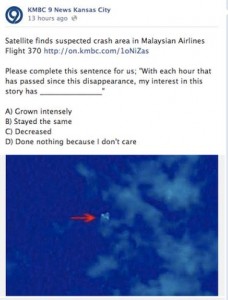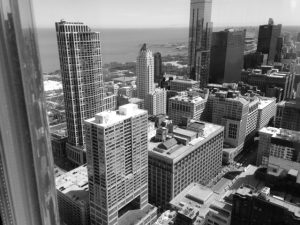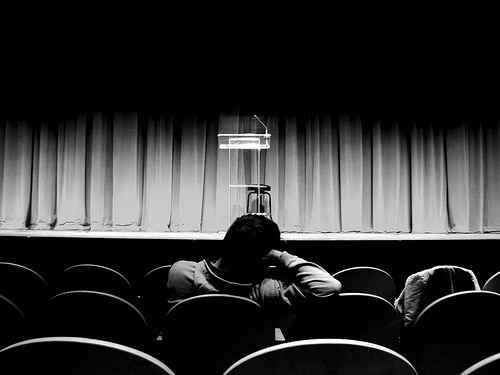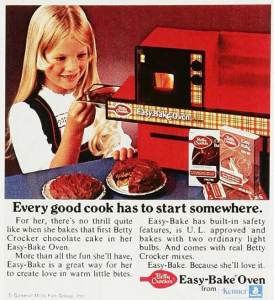It’s easy enough for a business to ditch a troublesome employee for tarnishing the company name, but what do you do when it’s the owner who’s caused the problem?
What happened?
In April, Los Angeles Clippers owner, Donald Sterling, was recorded telling his mistress not to bring black guests to Clippers games (after she posted a photo of herself with Magic Johnson on Instagram).
A four-day crisis for the LA Clippers brand
26th April
When celebrity news site, TMZ, reported racist remarks made by a the owner of an NBA team – and posted the audio recording to prove its allegations, it kicked off months of controversy for the team and the greater organisation.
.@cjbycookie and I will never go to a Clippers game again as long as Donald Sterling is the owner.
— Earvin Magic Johnson (@MagicJohnson) April 26, 2014
Celebrities and high-profile basketball players came out in opposition to his statements and called for the NBA to take the Clippers away from him.
The NBA released a statement calling the remarks disturbing and offensive and saying that it had launched an investigation.
Jesse Jackson called for a symbolic protest, and Clippers player, Deandre Jordan, posted this:
Reports followed of players considering not playing as a form of protest, and Magic Johnson suggested that rather than the players boycotting the games, the fans should. Calls for Sterling to be removed from the NBA continued throughout the day, and he agreed not to attend the team’s playoff game.
27th April
President Obama commented on the issue, saying that the comments were, “incredibly offensive racist statements,” and: “When ignorant folks want to advertise their ignorance, you don’t really have to do anything, you just let them talk.”
The Clippers team staged a protest by wearing their team shirts inside out to hide the logo. Fans made sure their voices were heard by bringing signs to the game.
Spectacular Donald Sterling signs (via @JeremySF) http://t.co/XBCVj9r7Pq pic.twitter.com/70IYbp4uW4
— SB Nation (@SBNation) April 27, 2014
In a somewhat unexpected move, the lead singer of the Village People banned the Clippers from playing YMCA at any of their events.
Sterling, you're banned from playing "Y.M.C.A." or any of my music @LAClippers games. And I mean it! #Clippers #BoycottClippers
— Victor Willis (@victorwillis) April 27, 2014
28th April
The National Association for the Advancement of Colored People, which was due to give Sterling an award, announced that it would be improving its vetting process in light of the revelations.
R&B singer, Tank, who was due to sing the national anthem at a Clippers game the next day, announced that he would be boycotting the game, and would not work with the NBA until it had completed its investigation.
L.A. Clippers sponsors started to distance themselves from the team. CarMax, announced that it was ending its nine-year relationship with the team due to the comments. State Farm announced that it was suspending its relationship with the team.
Virgin America became the third sponsor to drop the team, followed in quick order by Kia, which said it was suspending sponsorship. Mercedes-Benz dropped its sponsorship, and other potential sponsors put deals on hold.
The owner of the Portland Trail Blazers, a Microsoft co-founder, Paul Allen commented that if Sterling had spoken the statements attributed to him, he wasn’t fit to be an NBA team owner.

The Miami Heat showed its support to the Clippers by also wearing shirts inside out. (Effectively punishing sponsors that may have had nothing to do with the LA Clippers.)
Echoing Clippers yesterday, Heat come out for warmups, throw logo shirts down at midcourt & wear warm ups inside out pic.twitter.com/3bNQEd8woq
— Rachel Nichols (@Rachel__Nichols) April 28, 2014
29th April
Oprah Winfrey commented on the controversy.
Clothes chain, Kitson LA, pulled LA Clippers merchandise from sale.
The NBA banned Donald Sterling from NBA games for life, saying that he would be forced to sell the team and issuing him with a fine of $2.5m – which is the maximum amount it’s allowed to fine someone.
After the ban, the Clippers released a powerful message on social channels, and its website. Clippers coach, Doc Rivers wrote the message “we are one” in the locker room on the 27th, and the team embraced this messaged. It became the team’s new slogan, as was pushed out to the website and social media presences on the 29th. The team’s Twitter account gained more than 4.5k followers in one day.
#WeAreOne #Clippers pic.twitter.com/b25mYzllvG
— LA Clippers (@LAClippers) April 29, 2014
Over the following days, the message was shared by other NBA teams:
#WeAreOne pic.twitter.com/hMFOurp9na
— Atlanta Hawks (@ATLHawks) April 29, 2014
As the #Warriors prepare for tonight's playoff game, we share in the spirit of this league-wide message. #WeAreOne pic.twitter.com/k07HbGS1r3
— Golden State Warriors (@warriors) April 30, 2014
#WeAreOne pic.twitter.com/a6PVBrPJ0h
— Chicago Bulls (@chicagobulls) April 29, 2014
Days later, the NBA started merchandising this message, with profits going to anti-discrimination charities.
RT @Hudson_News: Get ur @LAClippers @NBA #WeAreOne tshirts @flyLAXairport T5 Proceeds: anti-discrimination charities pic.twitter.com/csmLzltuqG
— LAX Airport (@flyLAXairport) May 23, 2014
Where they are now
Months later, and the issue hasn’t gone away. Shelly Sterling (the team’s co-owner) almost sold it to ex-Microsoft CEO, Steve Ballmer, but her husband blocked the deal. As for Donald Sterling, he’s reportedly suing the NBA for bullying him out of the league.
While the issues are still simmering, the actions of those in the LA Clippers team, their fans, and the NBA, succeeded in bringing the team in from the storm, and leaving the disgraced owner to deal with the issues he created, himself.






